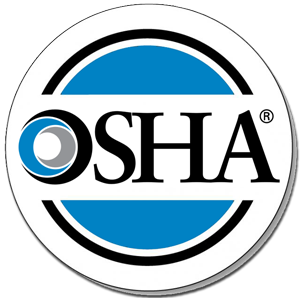Electrical Technician
On-Campus Certification Course from Impact Center of Arlington
Program Description
Electrical technicians assemble, install, test, maintain and repair electrical wiring and equipment. They work in a variety of industries, including manufacturing, research and electronics, using their knowledge of blueprint reading to work on electrical systems. Electrical technicians may work in the construction, maintenance and manufacturing industries and are responsible for installing, repairing and maintaining electrical systems and equipment. Electricians must understand state and local building codes like the National Electric Code® and be able to read technical diagrams. Individuals who get into an electrician training program can go on to many different careers.
This program focuses on broad, transferable skills, including an understanding of the electrical trade, the National Electrical Code® and more to prepare for entry-level careers in this growing field.
After completing this program, learners will be able to:
- Explain basic electrical theory concepts including measurement of electrical parameters and reading of electrical schematic diagrams
- Solve construction-related problems using basic math and common measuring tools
- Safely and properly use the proper hand/power tool for construction-related tasks
- Correctly read and interpret various construction drawings
- Identify and describe use of various types of rigging slings, hardware and equipment including use of proper ASME Emergency Stop hand signal
- Effectively communicate, listen, speak, read, and write to meet workplace expectations and communication goals
- Apply workplace skills such as critical thinking, problem solving, interpersonal skills, conflict management, and team skills
- Identify standard procedures for safely and properly handling common materials found on work sites
- Identify the various sectors, trade options, training options, and employee/employer responsibilities related to the electrical industry
- Identify electrical safety issues including specific hazards, PPE, prevention methods, standards, and safety requirements for electrical workers
- Properly select and use PPE for electrical work and environments
- Explain basic electrical theory concepts including measurement of electrical parameters and reading of electrical schematic diagrams
- Perform basic calculations and measurements used in electrical-related tasks
- Properly use the National Electrical Code®
- Properly size and install outlet, pull, and junction boxes
- Properly select and use hand bending equipment
- Properly cut, ream, and thread conduit using appropriate tools
- Properly select, handle, and install raceway systems, fasteners, anchors, wireways, specialty raceways, cable trays, and store raceways
- Properly select and install conductors by wire size, insulation, and application
- Describe and interpret various types of construction drawings
- Use an architect’s scale, engineer’s scale, and metric scale
- Demonstrate/explain how to compute loads for lighting, small appliance, laundry, and large appliances
- Determine number of branch circuits required
- Size and select service-entrance components
- Follow and label panelboard diagrams
- Identify proper outlet box required for the wiring conditions
- Identify and use appropriate electrical test equipment to measure voltage and value of various resistors
As part of this program, Learners will complete the following hands-on labs and activities:
- Electrical Safety
- Atomic Structure and Electricity
- Basic Electricity
- Introduction to the National Electrical Code®
- Device Boxes
- Hand Bending
- Raceways and Fittings
- Conductors and Cables
- Basic Electrical Construction Drawings
- Residential Electrical Services
- Electrical Test Equipment
- Components for a Grid-Connected and Off-Grid System
Certification Opportunities
After completing this program, learners will have the opportunity to take the leading national/industry-recognized certification exam(s) essential to entry-level employment in this fast-growing field.
 |
OSHA Course Completion Card for 10-Hour Course |
Optional Volunteer Externship Opportunity
Students who complete this program are eligible to participate in an optional volunteer externship opportunity with a local company/agency/organization whose work aligns with this area of study in order to gain valuable hands-on experience. As students progress through their eLearning program, an Externship Coordinator will reach out to coordinate placement.
Note: Additional documentation including health records, immunizations, drug-screening, criminal background checks, etc. may be required by the externship facility.
Requirements
- High School Diploma or GED
Program Details
- On-Campus Program
- Hands-On Labs
- Textbooks & Materials Included
- National Certification Opportunity
- Certificate of Completion
- Clinical Externship Opportunity